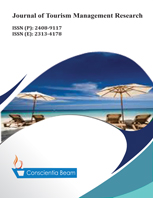Analysis of the Skills Gap in Tourism and Hospitality Industry in Kenya
DOI:
https://doi.org/10.18488/journal.31.2020.71.42.51Abstract
Most training institutions have supply led training instead of demand-driven training there by creating a supply of graduates whose knowledge and skills in not needed in the industry thereby creating a training gap between the educators and the industry. Limited studies in Kenya have been conducted to investigate factors that contribute to a widening of this gap. The purpose of this study was therefore to analysis of the skills gap in tourism and hospitality industry in Kenya. The specific objectives were to investigate the skills gap between tourism and hospitality graduates and industry expectation, examine the stakeholder’s opinion on performance university graduates as compared to graduates from Technical and Vocational Education Training institutes and examine the emerging trends in human labor in tourism and hospitality that educators should anticipate. The sample size was 200 respondents composed of managers and supervisors from 2 stars to 5 stars rating hotels. Data was collected using questionnaires and interviews. The respondents rated graduates from Technical and Vocational training institutions higher than those from university in supervisory skills (χ2=82.625, df =2, p<0.05), Management and leadership skills (χ2=56.625,df =2, p<0.05) and Technical or operational skills (χ2=27.792,df =2, p<0.05).It was found that training institution apply supply-driven training instead of demand driven there by creating a shortage of adequately trained and skilled staff suitable for the tourism job market. The study recommends involvement of educators and industry practitioner in training of resource persons in the tourism and hospitality industry and enforcement of National Qualification Framework to ensure standardized curriculum contents in training institutions.

